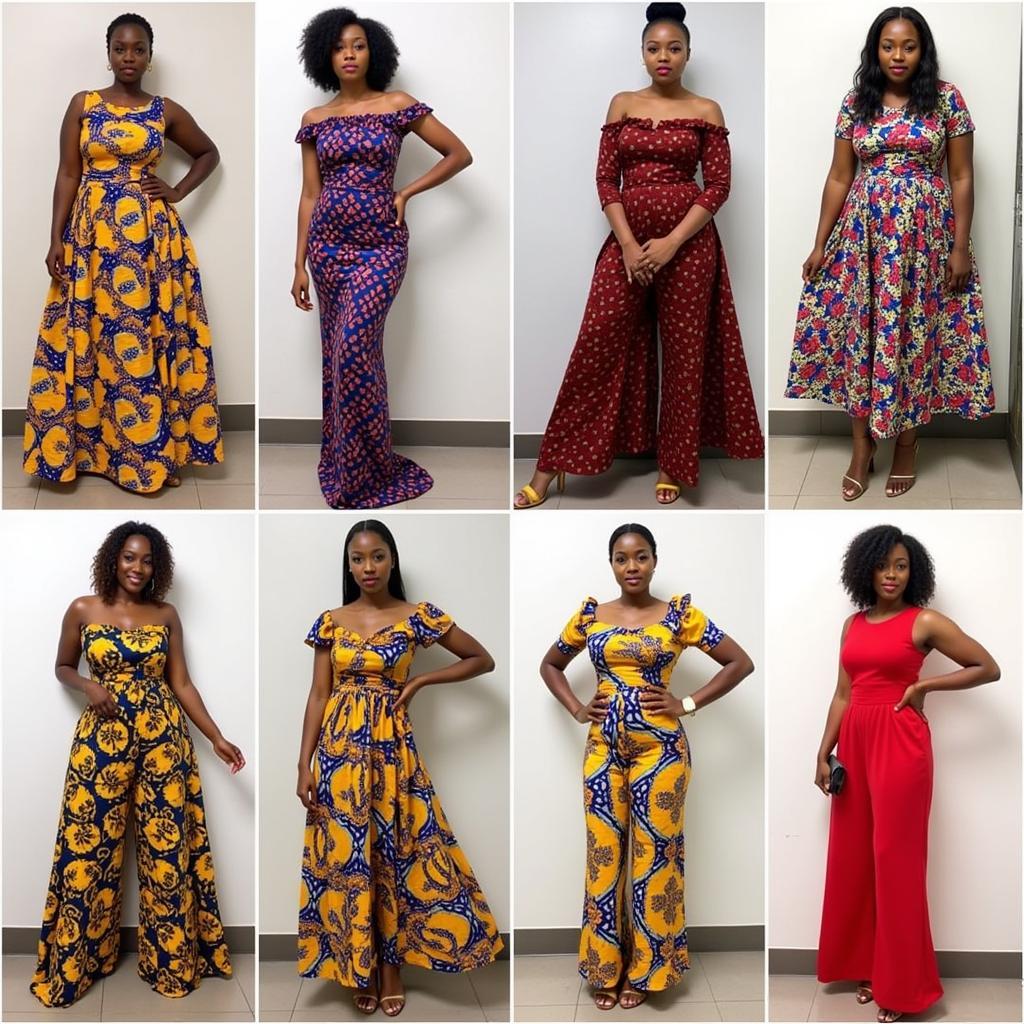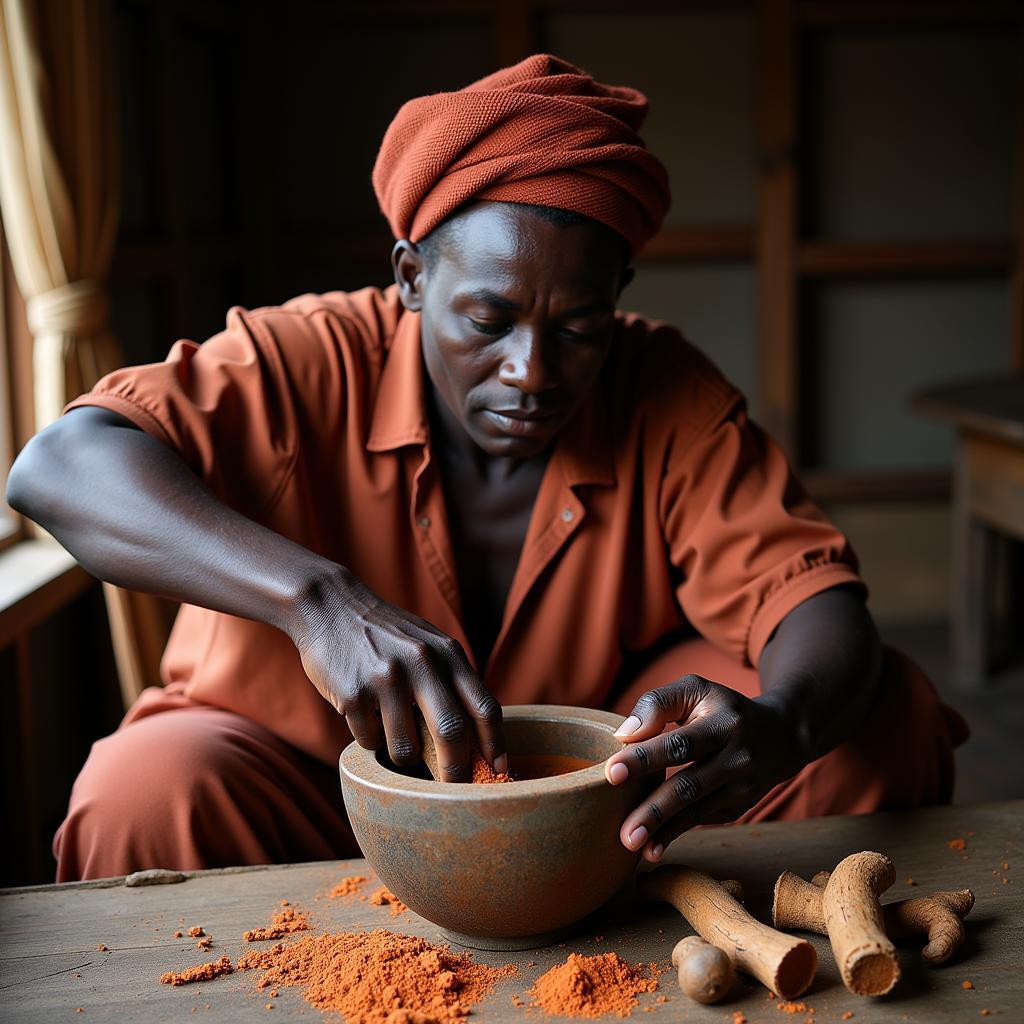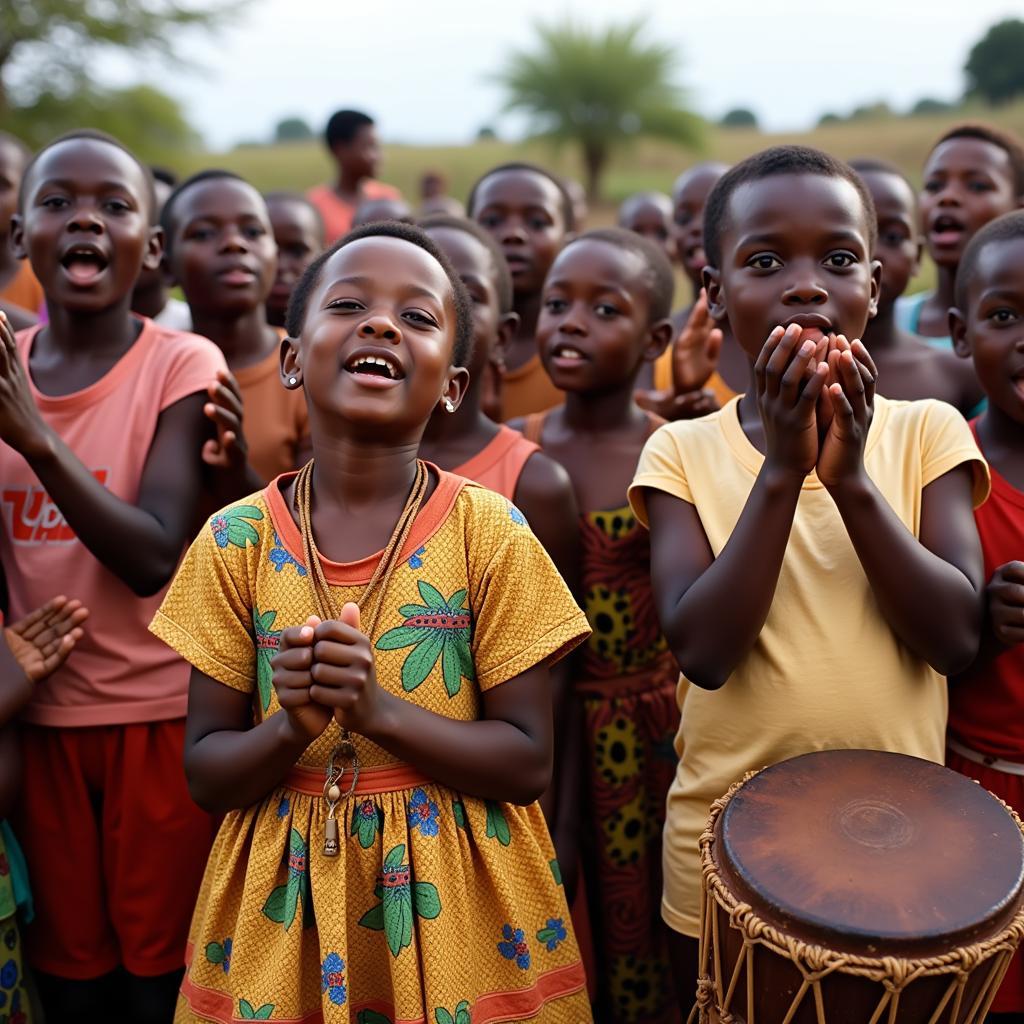The Captivating World of African Guitar Music
African Guitar Music is a vibrant tapestry of diverse styles and rhythms, reflecting the continent’s rich cultural heritage and history. From the mesmerizing melodies of the kora to the energetic beats of soukous, African guitar music has captivated audiences worldwide with its unique sound and infectious energy. This exploration delves into the heart of this musical tradition, uncovering its origins, evolution, and enduring influence.
The Roots of a Continent’s Sound
The history of African guitar music is interwoven with the arrival of European instruments and the continent’s own musical legacy. While stringed instruments like the ngoni and kora existed in West Africa for centuries, the introduction of the guitar by Portuguese sailors in the 15th century sparked a musical revolution.
Early Influences and Adaptations
Africans embraced the guitar, adapting its tuning and playing techniques to suit their own musical sensibilities. In many regions, the guitar replaced or blended with existing instruments, leading to the creation of unique hybrid styles. The ngoni, a traditional West African lute, influenced early guitar playing in Mali, while in countries like Senegal and Gambia, the guitar found a natural home within the griot tradition, accompanying epic tales and historical narratives.
Regional Styles and Evolutions
Over time, distinct regional styles of African guitar music emerged, each bearing the unique musical fingerprint of its origin.
West African Grooves
West Africa, with its deep musical heritage, became a hotbed for guitar innovation. In Senegal, mbalax, characterized by its complex rhythms and call-and-response vocals, became the dominant genre, propelled by the iconic Orchestra Baobab. In Mali, the guitar found its voice in the bluesy melodies of Ali Farka Touré and the desert blues of Tinariwen, echoing the vastness of the Sahara.
Central and East African Rhythms
Central and East Africa developed their own vibrant guitar traditions. Soukous, with its origins in Congolese rumba, emerged as a highly danceable genre, characterized by its fast-paced rhythms and intricate guitar work. Artists like Franco Luambo and Papa Wemba became international stars, spreading the sounds of soukous across the globe. In East Africa, benga music, originating in Kenya, blended traditional rhythms with guitar lines, creating a sound that was both familiar and fresh.
Modern Expressions and Global Influences
African guitar music continues to evolve, incorporating elements of global genres while staying true to its roots.
From Afrobeat to Chimurenga
Fela Kuti, a pioneer of Afrobeat, infused his music with funk, jazz, and highlife, creating a powerful form of political and social commentary. In Zimbabwe, Thomas Mapfumo’s chimurenga music used traditional instruments alongside the guitar to challenge oppression and celebrate independence.
A New Generation of Strings
Today, a new generation of African guitarists is pushing the boundaries of the genre. Artists like Vieux Farka Touré, son of Ali Farka Touré, are carrying on their fathers’ legacies while adding their own contemporary flair. Others, like Fatoumata Diawara and Bombino, are exploring new sonic landscapes, blending traditional sounds with blues, rock, and electronic influences.
The Enduring Allure of African Guitar Music
African guitar music, with its rich history and diverse styles, continues to captivate audiences worldwide. Its infectious rhythms, soulful melodies, and powerful storytelling ability transcend cultural boundaries, offering a glimpse into the heart and soul of a continent. Whether it’s the mesmerizing desert blues of Mali or the energetic soukous of Congo, African guitar music remains a testament to the power of music to unite, inspire, and uplift.
FAQs
1. What are some of the most popular African guitar styles?
Some of the most popular African guitar styles include mbalax from Senegal, soukous from Congo, benga from Kenya, and desert blues from Mali.
2. Who are some iconic African guitarists?
Iconic African guitarists include Ali Farka Touré, Franco Luambo, Papa Wemba, Vieux Farka Touré, Fatoumata Diawara, and Bombino, among many others.
3. Where can I listen to and discover more African guitar music?
You can find a wealth of African guitar music on online platforms like YouTube, Spotify, and Apple Music. Explore curated playlists, radio stations, and artist pages to discover new sounds.
Need More Information on African Music?
Explore these related articles for further insights into the diverse world of African music:
For any inquiries or assistance, please contact us at:
Phone: +255768904061
Email: kaka.mag@gmail.com
Address: Mbarali DC Mawindi, Kangaga, Tanzania
Our dedicated customer support team is available 24/7 to assist you.


